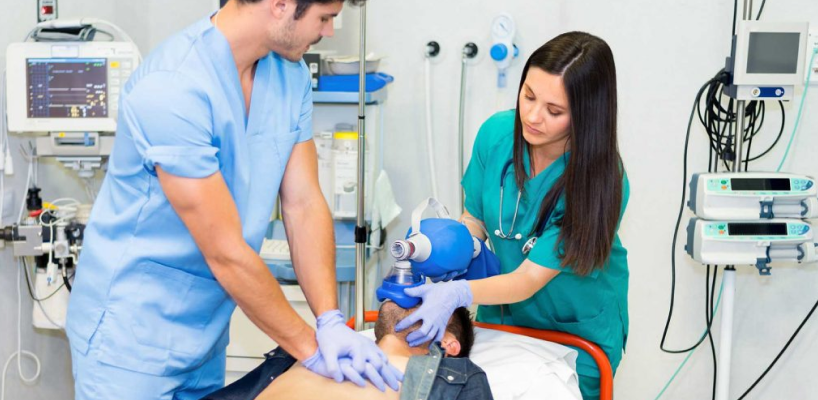
Last Updated On: September 9, 2024
In emergency medical care, BLS or Basic Life Support is considered to be the foundation of all lifesaving courses. It makes the critical difference between life and death in critical emergencies. BLS techniques are however not static achievements. It is important to go through BLS renewal courses every 2 years, to ensure that your learning is updated with industry standards.
Basic Life Support comprises a range of essential skills like Cardiopulmonary Resuscitation and AED(Automated External Defibrillators) administration. Recertification ensures compliance with legal mandates. It safeguards both individuals and organizations from liability.
This blog will guide you towards selecting the right recertification course for Basic Life Support and its advantage.
Recertifying your BLS certification will give you several advantages. Among which the most important skill is the ability to respond immediately to life threatening crises. Let’s go through the benefits offered by BLS recertification courses one by one-
Maintaining Competency: BLS recertification ensures that individuals stay up-to-date with the latest guidelines, techniques, and best practices in emergency medical care. The ongoing education helps maintain proficiency in lifesaving skills. It also ensures confident and skillful intervention in critical situations.
Refreshing Skills: Like any skill, proficiency in BLS techniques can diminish over time without regular practice. It gives an opportunity to refresh muscle memory that ensures accurate and efficient intervention.
Staying Current with Guidelines: Medical guidelines and protocols for BLS may evolve over time as new research and evidence emerge. By incorporating updates to guidelines, recertification courses allow learners to adapt to new rules easily.
Professional Development: BLS recertification can contribute to professional development, particularly for healthcare professionals, first responders, and individuals in related fields. It shows a commitment to ongoing learning and improvement. It also enhances career opportunities and job prospects for several people.
Meeting Regulatory Requirements: In many professions, maintaining BLS certification is a requirement for employment or licensure. Recertification ensures compliance with regulatory standards. This allows individuals to continue working in their chosen field without interruption.
Enhancing Team Preparedness: Recertification often involves group training sessions and simulations, which can foster teamwork and collaboration among responders. By practicing together, teams can improve coordination and communication.
Contribution to Public Safety: Recertification courses in BLS shows a commitment towards personal and professional safety. When proficiency is maintained, individuals are better prepared to assist people in need.
Overall, the advantages of BLS recertification are many. It includes improved competency, skill retention and professional development along with regulatory compliance, teamwork, and a commitment to public welfare.
When individuals prioritize ongoing training and renewal, they are prepared to make a positive difference in the lives of others.
A BLS recertification class offers a comprehensive review of essential skills and knowledge needed to respond effectively to medical emergencies. This ensures that participants remain prepared and competent in their roles as first responders or healthcare providers. Renewal classes are for individuals who already have a certification in Basic Life Support. Let’s find out what to expect from BLS recertification classes.
The advantages of BLS renewal courses are particularly helpful for individuals working in the emergency response department. Renewing BLS certification ensures the competency and confidence of people enrolling for the courses. Recertification not only fulfills regulatory requirements, it also promotes professional development. Enroll in a BLS recertification course and make a meaningful difference in critical situations where every second counts.